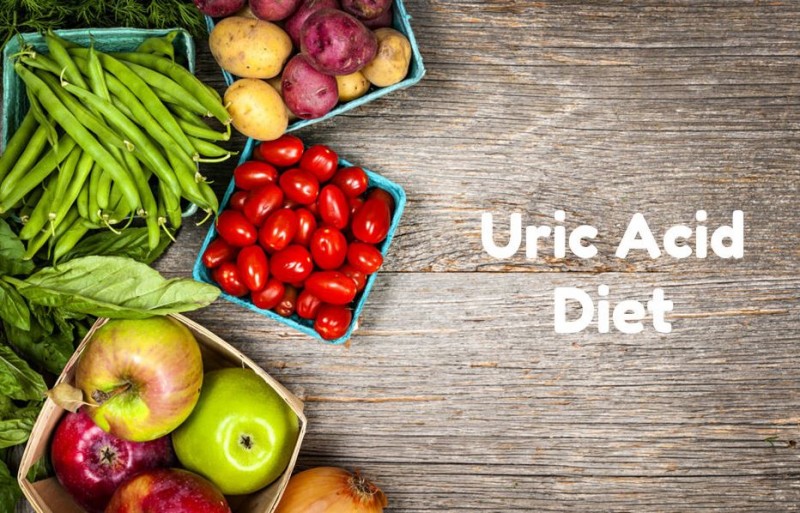
Maintaining balanced uric acid levels is crucial for overall health, especially when considering the (How to control uric acid) potential implications on kidney health. Uric acid is a natural waste product that forms when the body breaks down purines, compounds found in various foods and cells. While a certain amount of uric acid is normal and even necessary for the body, elevated levels can lead to various health issues, including gout and kidney problems. In this article, we will explore the connection between uric acid, kidney health, and dietary choices, providing insights into foods that can help manage uric acid levels and promote kidney (How to control uric acid) health.
The Uric Acid-Kidney Health Link
Uric acid is primarily excreted from the body through the kidneys. However, when the kidneys are unable to effectively remove excess uric acid, it can accumulate in the bloodstream and form crystals in the joints, leading to gout, a painful form of arthritis. Furthermore, prolonged high levels of uric acid can contribute to the development of kidney stones and potentially lead to kidney disease over time.
Dietary Strategies for Managing Uric Acid Levels and Kidney Health
Hydration: Staying adequately hydrated is essential for preventing uric acid buildup. Water helps flush out excess uric acid through urine. Aim for at least 8 glasses of water a day, and more if you engage in vigorous physical activity or live in a hot climate.
Low-Purine Foods: Since uric acid is a byproduct of purine metabolism, reducing the intake of high-purine foods can be beneficial. Foods rich in purines include organ meats (liver, kidney), red meat, seafood (anchovies, sardines, mussels), and certain legumes (lentils, beans). Instead, opt for lean sources of protein like poultry, tofu, and low-fat dairy products.
High-Fiber Foods: A diet high in fiber has been associated with lower uric acid levels and improved kidney function. Whole grains, fruits, vegetables, and legumes are excellent sources of dietary fiber. Fiber helps with digestion and elimination, reducing the workload on the kidneys.
Cherries and Berries: Cherries and berries, particularly strawberries and blueberries, have been shown to have anti-inflammatory properties and may help lower uric acid levels. These fruits are also rich in antioxidants that support overall health.
Citrus Fruits: Citrus fruits like oranges, lemons, and limes are high in vitamin C, which may help lower uric acid levels by enhancing its excretion through urine. Moreover, vitamin C-rich foods support the immune system and provide protection against oxidative stress.
Leafy Greens: Leafy greens such as spinach, kale, and Swiss chard are low in purines and high in vitamins and minerals. They are excellent choices for a kidney-friendly diet as they provide essential nutrients without contributing to uric acid buildup.
Low-Fat Dairy: Low-fat dairy products like yogurt and milk are associated with a reduced risk of gout and kidney stones. Dairy products contain proteins that may help excrete uric acid from the body. However, moderation is key, as excessive consumption may have adverse effects on kidney health due to the phosphorus content.
Nuts and Seeds: Nuts and seeds are good sources of healthy fats, protein, and fiber. They are low in purines and can be included in a balanced diet to support kidney health.
Herbal Teas: Herbal teas like nettle tea have been traditionally used to aid in kidney function and urinary health. Nettle tea, in particular, is believed to have diuretic properties that can help eliminate excess uric acid from the body.
Limit Alcohol and Sugary Beverages: Alcohol consumption, especially beer, can contribute to elevated uric acid levels and increase the risk of gout attacks. Additionally, sugary beverages are linked to kidney damage and should be consumed in moderation.
Maintaining healthy uric acid levels is vital for overall (How to control uric acid) health, and taking proactive steps to support kidney health can have long-lasting benefits. By adopting a diet rich in low-purine foods, high-fiber options, and kidney-friendly choices, you can effectively manage uric acid levels and reduce the risk of kidney-related complications. Remember, individual dietary needs vary, so consulting a healthcare professional or a registered dietitian before making significant dietary changes is recommended. With proper dietary choices and a focus on hydration, you can promote optimal kidney function and enjoy a healthier, more vibrant life.
Fertilizers for Kharif Planting; States Urged to Counter Urea Diversions: Mandaviya
Health Benefits of Bhutta During Rainy Days: 8 Reasons to Enjoy Corn Daily